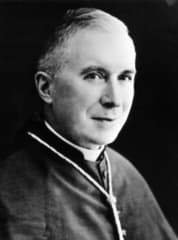アヴェ・マリア・インマクラータ!
愛する兄弟姉妹の皆様、
7月17日の東京でのミサのご報告の続きをご紹介します。
マーチフォーライフ2017は、私たちに多くのことを考えさせてくれました。

まず、全ての人間の命が天主様から与えられたかけがえのない贈り物である、と言うことを。
だから、全ての命を私たちは両手を大きく広げて受け入れなければなりません。全ての赤ちゃんの命を私たちは愛さなければなりません。この罪のない弱い赤ちゃんの命を受け入れ、私たちの隣人の兄弟姉妹を愛さなければなりません。
私たちの希望であり宝である日本国民の赤ちゃんの命を奪ってきたという、忘れ去られている、胸のいたくなる悲しい現実に関心を持たなければなりません。
同時に最も声を大きく上げて言いたいことがあります。それは、私たちは、誰にも謝罪を要求したりしないし、断罪したりしないし、責めたりもしない、批判したりもしない、ということです。とんでもない! 「堕胎という罪」は断罪しますが、人を責めるのではありません。
私たちの主は、私たちを赦すために幼子になり、私たちを愛して赦すために無罪であったにもかかわらず十字架に付けられて、私たちの罪の償いを果たして下さったのですから。私たちはただただ憐れみ深いイエズス・キリストの憐れみと赦しとを乞い求めるのみです。
日本の数百万名のカトリック信徒の方々は250年以上に亘って、たった一人の狂人のような為政者にはじまった政策により、虐待され殺害されてきました。そのような殉教者たちは、迫害する人々を憎まず、彼らの善を求めて祈りながら殉教していきました。これがキリストの「正義」だったのです。
「自らを赦される対象ではない・自分は何の罪もないと思い、他の人々を批判する」ような不遜な態度は、キリストの教えではありません。
あたかも自分には罪がないかのように「私たちが望むのは、日本が自分たちの犯した罪から解放されることだ」とうそぶきながら殉教者が亡くなったのではありませんでした。私たちの祖先のカトリック信徒らは、赦し、赦し、赦しながら、殉教していきました。他人を赦すこと、それがキリストの教えです。
私たちが明るい未来をつくっていくために私たちのなすべきことは、受けた悪や害悪を赦すことです。天主こそが私たちの裁き主であるからです。
しかし、罪のない子供たちをまだそのまま殺し続けていると言う事実は、そのまま残っています。私たちは、この殺人がなくなることを願っています。
日本は、大東亜戦争の後に、真摯に平和を求めて来ました。外国に対して要求される賠償を誠実に執行し続けてきました。戦後72年の後、第二次世界大戦について、私たちは外国の方々から後ろ指を指されることはありえません。天主様は、私たちの努力と誠実さを見て下さり、憐れみ給うからです。
罪の現行犯で逮捕されたマリア・マグダレナを赦し給うた天主は、何故、第二次世界大戦という戦争を知らずに生まれた私たち日本国民に、責任のない戦争の責を負わせ、担えきれないほどの荷を負わせることができるでしょうか?
しかし、日本人が、自分たちの子供に対して今現在行っている戦争の責任については、天主は日本人にその責任を取らせます。それが天主の正義だからです。
まだ時があるうちに、この戦争を終わらせなければなりません。日本民族の存続にかけて、私たちの子供たちの虐殺を終わらせなければなりません。
そして、ファチマの聖母が私たちに教えて下さったことは、私たちが罪を犯した人々の代わりに祈りと償いを捧げなければならないと言うことです。戦争を終わらせるために、ロザリオを毎日祈らなければならないと言うことです。
主よ、われらを憐れみ給え!
ファチマの聖母よ、われらのために祈り給え!
【報告】
「堕胎はどうして罪になるか」の講話の要旨
聖ピオ十世会では産みの日の午後にプロライフに関する講話・勉強会が行われました。)
天主様は人間を天主の似姿としてつくられたので、天主の像を破壊することが赦されていないように、天主の似姿である人間を破戒することもゆるされていない。天主を傷つけることになるから。
人間には、他の生物にはない尊厳が与えられているので、これを大切にしなければならない。
堕胎の罪が反している戒律は以下の四つである。
第5戒 なんじ、殺すなかれ
第4戒 なんじ、父母を敬うべし
第1戒 われはなんじの主なり。われを唯一の天主として礼拝すべし。
第6戒 なんじ、かんいんするなかれ
第5戒について・・・堕胎は殺人であること
第4戒について・・・天主の代理者として義務をする(父親母親の役割)に反している
第1戒について・・・まことの天主を知り礼拝する機会を奪われる
第6戒について・・・いのちを正しく伝達する個人のいのちのみならず人類全体のいのちの伝達することに関して反している
たとえ誰かが人を殺しても破門されないけれど、堕胎に協力した医師や看護婦は破門される、それほどお母さんのおなかの中で守られるべき無抵抗の赤ちゃんを殺すことの罪は残虐でその罪は大きいとされている。
天に復讐を叫ぶ罪というのがあるけれど、この堕胎という罪もそのような恐ろしい罪の一つである。
この「天に復讐を叫ぶ罪」があるところ、天主はこの地上を罰してそのままでは置かない。例えばソドムとゴモラはそのような罪のために地上から姿を消してしまった。そのことに気づいていようと気づいていないとにかかわらず、地上に平和と安全が守られるためには人間には守らなければならない戒律がある。(例えば恐ろしい天災・災害が起きてしまって人間にはどうしようもないような破壊力でこの地が無に帰すようなことがあるとしたら、この「天に復讐を叫ぶ罪」のせいであろうか。)
【報告】
小野田神父様お風邪気味のなか真夏の太陽の照り付ける中ずっとロザリオを唱えれてとても感動いたしました。(お風邪大丈夫でしょうか?)あるノブスオルドの私も良く知っている敬虔なカトリック信者の方(まだおそらく聖ピオ十世会に来たことない方)がずっと小野田神父様から離れないで一緒にロザリオと祈りを捧げられていました。
聖マリアの汚れなき御心のうちに!
【報告】
アヴェ・マリア・インマクラータ!
マーチフォーライフのレポートやお写真などを拝見させて頂きました!
ファチマのマリア様の御像が本当に美しくて素晴らしくて、日本の東京の大都会で、このようにマリア様と共にマーチフォーライフができた事にとても感動致しました。
そして今年は去年よりも倍以上の方が参加されたという事でとても嬉しく思います!
神父様も、去年は小野田神父様だけでしたが、もう一人アルバをお召しになった神父様が参加して下さってとても嬉しく思います!
日本を本当に愛して下さっているマリア様に感謝します。そして暑さの中、体調が悪いにもかかわらず歩いて下さった小野田神父様、参加者の方々、マーチフォーライフの為に労を執って下さった池田様、他実行委員会の方々、警察の方々に感謝します。
来年はファチマのマリア様の御取り次ぎによって、更に多くの方が参加して下さいますように。その中に、できれば私の霊魂も数えられますように。
そしてこの恐るべき国内戦争を起こしてしまっている日本に、マリア様の汚れなき御心が凱旋しますように。
デオ・グラチアス!
【報告】
アヴェ・マリア・インマクラータ!
こんばんは!☆(*^^*)
次の御ミサまで、償いの精神をもって、日々、何度も霊的御聖体拝領をしようと思いました! 15分の黙想が毎日なかなかちゃんとできないので、マリア様の汚れなき御心の中に深く入るために、黙想の大切さをもっと理解することができますように!
デオ・グラチアス!
愛する兄弟姉妹の皆様、
7月17日の東京でのミサのご報告の続きをご紹介します。
マーチフォーライフ2017は、私たちに多くのことを考えさせてくれました。

まず、全ての人間の命が天主様から与えられたかけがえのない贈り物である、と言うことを。
だから、全ての命を私たちは両手を大きく広げて受け入れなければなりません。全ての赤ちゃんの命を私たちは愛さなければなりません。この罪のない弱い赤ちゃんの命を受け入れ、私たちの隣人の兄弟姉妹を愛さなければなりません。
私たちの希望であり宝である日本国民の赤ちゃんの命を奪ってきたという、忘れ去られている、胸のいたくなる悲しい現実に関心を持たなければなりません。
同時に最も声を大きく上げて言いたいことがあります。それは、私たちは、誰にも謝罪を要求したりしないし、断罪したりしないし、責めたりもしない、批判したりもしない、ということです。とんでもない! 「堕胎という罪」は断罪しますが、人を責めるのではありません。
私たちの主は、私たちを赦すために幼子になり、私たちを愛して赦すために無罪であったにもかかわらず十字架に付けられて、私たちの罪の償いを果たして下さったのですから。私たちはただただ憐れみ深いイエズス・キリストの憐れみと赦しとを乞い求めるのみです。
日本の数百万名のカトリック信徒の方々は250年以上に亘って、たった一人の狂人のような為政者にはじまった政策により、虐待され殺害されてきました。そのような殉教者たちは、迫害する人々を憎まず、彼らの善を求めて祈りながら殉教していきました。これがキリストの「正義」だったのです。
「自らを赦される対象ではない・自分は何の罪もないと思い、他の人々を批判する」ような不遜な態度は、キリストの教えではありません。
あたかも自分には罪がないかのように「私たちが望むのは、日本が自分たちの犯した罪から解放されることだ」とうそぶきながら殉教者が亡くなったのではありませんでした。私たちの祖先のカトリック信徒らは、赦し、赦し、赦しながら、殉教していきました。他人を赦すこと、それがキリストの教えです。
私たちが明るい未来をつくっていくために私たちのなすべきことは、受けた悪や害悪を赦すことです。天主こそが私たちの裁き主であるからです。
しかし、罪のない子供たちをまだそのまま殺し続けていると言う事実は、そのまま残っています。私たちは、この殺人がなくなることを願っています。
日本は、大東亜戦争の後に、真摯に平和を求めて来ました。外国に対して要求される賠償を誠実に執行し続けてきました。戦後72年の後、第二次世界大戦について、私たちは外国の方々から後ろ指を指されることはありえません。天主様は、私たちの努力と誠実さを見て下さり、憐れみ給うからです。
罪の現行犯で逮捕されたマリア・マグダレナを赦し給うた天主は、何故、第二次世界大戦という戦争を知らずに生まれた私たち日本国民に、責任のない戦争の責を負わせ、担えきれないほどの荷を負わせることができるでしょうか?
しかし、日本人が、自分たちの子供に対して今現在行っている戦争の責任については、天主は日本人にその責任を取らせます。それが天主の正義だからです。
まだ時があるうちに、この戦争を終わらせなければなりません。日本民族の存続にかけて、私たちの子供たちの虐殺を終わらせなければなりません。
そして、ファチマの聖母が私たちに教えて下さったことは、私たちが罪を犯した人々の代わりに祈りと償いを捧げなければならないと言うことです。戦争を終わらせるために、ロザリオを毎日祈らなければならないと言うことです。
主よ、われらを憐れみ給え!
ファチマの聖母よ、われらのために祈り給え!
【報告】
「堕胎はどうして罪になるか」の講話の要旨
聖ピオ十世会では産みの日の午後にプロライフに関する講話・勉強会が行われました。)
天主様は人間を天主の似姿としてつくられたので、天主の像を破壊することが赦されていないように、天主の似姿である人間を破戒することもゆるされていない。天主を傷つけることになるから。
人間には、他の生物にはない尊厳が与えられているので、これを大切にしなければならない。
堕胎の罪が反している戒律は以下の四つである。
第5戒 なんじ、殺すなかれ
第4戒 なんじ、父母を敬うべし
第1戒 われはなんじの主なり。われを唯一の天主として礼拝すべし。
第6戒 なんじ、かんいんするなかれ
第5戒について・・・堕胎は殺人であること
第4戒について・・・天主の代理者として義務をする(父親母親の役割)に反している
第1戒について・・・まことの天主を知り礼拝する機会を奪われる
第6戒について・・・いのちを正しく伝達する個人のいのちのみならず人類全体のいのちの伝達することに関して反している
たとえ誰かが人を殺しても破門されないけれど、堕胎に協力した医師や看護婦は破門される、それほどお母さんのおなかの中で守られるべき無抵抗の赤ちゃんを殺すことの罪は残虐でその罪は大きいとされている。
天に復讐を叫ぶ罪というのがあるけれど、この堕胎という罪もそのような恐ろしい罪の一つである。
この「天に復讐を叫ぶ罪」があるところ、天主はこの地上を罰してそのままでは置かない。例えばソドムとゴモラはそのような罪のために地上から姿を消してしまった。そのことに気づいていようと気づいていないとにかかわらず、地上に平和と安全が守られるためには人間には守らなければならない戒律がある。(例えば恐ろしい天災・災害が起きてしまって人間にはどうしようもないような破壊力でこの地が無に帰すようなことがあるとしたら、この「天に復讐を叫ぶ罪」のせいであろうか。)
【報告】
小野田神父様お風邪気味のなか真夏の太陽の照り付ける中ずっとロザリオを唱えれてとても感動いたしました。(お風邪大丈夫でしょうか?)あるノブスオルドの私も良く知っている敬虔なカトリック信者の方(まだおそらく聖ピオ十世会に来たことない方)がずっと小野田神父様から離れないで一緒にロザリオと祈りを捧げられていました。
聖マリアの汚れなき御心のうちに!
【報告】
アヴェ・マリア・インマクラータ!
マーチフォーライフのレポートやお写真などを拝見させて頂きました!
ファチマのマリア様の御像が本当に美しくて素晴らしくて、日本の東京の大都会で、このようにマリア様と共にマーチフォーライフができた事にとても感動致しました。
そして今年は去年よりも倍以上の方が参加されたという事でとても嬉しく思います!
神父様も、去年は小野田神父様だけでしたが、もう一人アルバをお召しになった神父様が参加して下さってとても嬉しく思います!
日本を本当に愛して下さっているマリア様に感謝します。そして暑さの中、体調が悪いにもかかわらず歩いて下さった小野田神父様、参加者の方々、マーチフォーライフの為に労を執って下さった池田様、他実行委員会の方々、警察の方々に感謝します。
来年はファチマのマリア様の御取り次ぎによって、更に多くの方が参加して下さいますように。その中に、できれば私の霊魂も数えられますように。
そしてこの恐るべき国内戦争を起こしてしまっている日本に、マリア様の汚れなき御心が凱旋しますように。
デオ・グラチアス!
【報告】
アヴェ・マリア・インマクラータ!
こんばんは!☆(*^^*)
次の御ミサまで、償いの精神をもって、日々、何度も霊的御聖体拝領をしようと思いました! 15分の黙想が毎日なかなかちゃんとできないので、マリア様の汚れなき御心の中に深く入るために、黙想の大切さをもっと理解することができますように!
デオ・グラチアス!










